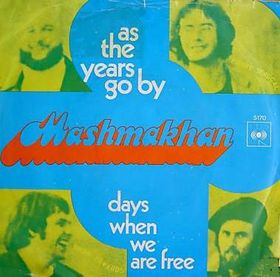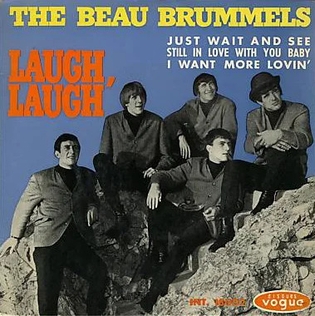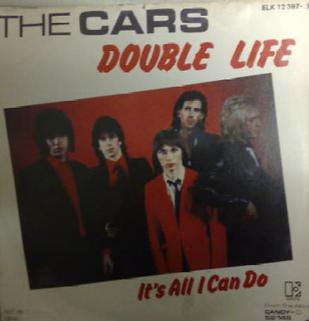Related Research Articles

MC5 is an American rock band formed in Lincoln Park, Michigan, in 1963. The classic line-up consisted of vocalist Rob Tyner, guitarists Wayne Kramer and Fred "Sonic" Smith, bassist Michael Davis, and drummer Dennis Thompson. MC5 were listed by Parade as one of the best rock bands of all time and by VH1 as one of the greatest hard rock artists of all time. The band's first three albums are regarded by many as staples of rock music, and their 1969 song "Kick Out the Jams" is widely covered.

Robert Clark Seger is a retired American singer, songwriter, and musician. As a locally successful Detroit-area artist, he performed and recorded as Bob Seger and the Last Heard and the Bob Seger System throughout the 1960s, breaking through with his first album, Ramblin' Gamblin' Man in 1969. By the early 1970s, he had dropped the 'System' from his recordings and continued to strive for broader success with various other bands. In 1973, he put together the Silver Bullet Band, with a group of Detroit-area musicians, with whom he became most successful on the national level with the album Live Bullet (1976), recorded live with the Silver Bullet Band in 1975 at Cobo Hall in Detroit, Michigan. In 1976, he achieved a national breakout with the studio album Night Moves. On his studio albums, he also worked extensively with the Alabama-based Muscle Shoals Rhythm Section, which appeared on several of Seger's best-selling singles and albums.

Heart is an American rock band formed in 1973 in Seattle, Washington. The band evolved from previous projects led by founding members Roger Fisher (guitar) and Steve Fossen, including The Army (1967–1969), Hocus Pocus (1969–1970), and White Heart (1970–1973). By 1975, original members Fisher, Fossen, and Ann Wilson, along with Nancy Wilson, Michael Derosier (drums), and Howard Leese formed the lineup for the band's initial mid- to late-1970s success period. These core members were included in the band's 2013 induction into the Rock and Roll Hall of Fame.

The Steve Miller Band is an American rock band formed in 1966 in San Francisco, California. The band is led by Steve Miller on guitar and lead vocals. The group had a string of mid- to late-1970s hit singles that are staples of classic rock, as well as several earlier psychedelic rock albums. Miller left his first band to move to San Francisco and form the Steve Miller Blues Band. Shortly after Harvey Kornspan negotiated the band's contract with Capitol Records in 1967, the band shortened its name to the Steve Miller Band. In February 1968, the band recorded its debut album, Children of the Future. It went on to produce the albums Sailor, Brave New World, Your Saving Grace, Number 5, Rock Love, Fly Like an Eagle, Book of Dreams, among others. The band's Greatest Hits 1974–78, released in 1978, sold over 13 million copies. In 2016, Steve Miller was inducted as a solo artist in the Rock and Roll Hall of Fame.

Michael John "Cub" Koda was an American rock and roll musician, songwriter, and critic. Rolling Stone magazine considered him best known for writing the song "Smokin' in the Boys Room", recorded by his band Brownsville Station, which reached number 3 on the 1974 Billboard chart.
Sonic's Rendezvous Band was an American rock and roll band from Ann Arbor, Michigan, United States, forming in 1974, featuring veterans of the 1960s Detroit rock scene.
"(I Know) I'm Losing You" is a 1966 hit single recorded by the Temptations for the Gordy (Motown) label, written by Cornelius Grant, Eddie Holland and Norman Whitfield, and produced by Norman Whitfield.

Brownsville Station is an American rock band from Michigan popular in the 1970s. Original members included Cub Koda (guitarist/vocalist), Mike Lutz (guitarist/vocalist), T.J. Cronley (drummer), and Tony Driggins (bassist/vocals). Later members included Henry "H-Bomb" Weck (drummer) and Bruce Nazarian (guitarist/vocalist).
The SRC was a Detroit-based psychedelic rock band from the late 1960s. From 1966 to 1972, they were a staple at many Detroit rock venues, such as the Grande Ballroom.

"Don't Let It End" is the third track and the second top 10 single on the 1983 album Kilroy Was Here, by Styx.
Scott Morgan is an American rock and roll and soul musician, most known for his work with the Sonic's Rendezvous Band, the Rationals, The Solution as well as his solo work.

"As the Years Go By" is the first single by rock fusion band Mashmakhan from their self-titled debut album. The single was recorded in Columbia B Studios and was released as the first single to Mashmakhan's self-titled debut album. The other single "Days When We Are Free" was used as the A-side to the 45rpm. "As the Years Go By" was also fit into several compilation albums of '70s songs.

"Laugh, Laugh" is a song by American rock group the Beau Brummels, written by guitarist Ron Elliott and produced by Sylvester Stewart, later known as Sly Stone. Released in December 1964 as the band's debut single, the song reached number 15 on the U.S. Billboard Hot 100 chart the following February. "Laugh, Laugh" was the first hit single to come out of the emerging San Francisco music scene in response to the British Invasion. The song was later included on the band's first full-length album, Introducing the Beau Brummels, released in April 1965.
The Up was an American rock band formed in Detroit, Michigan in early 1967. Along with fellow proto-punk bands the MC5 and The Stooges, The Up served as a "house band" for the Grande Ballroom in Detroit.

"Double Life" is a single by the American rock band the Cars from their second album Candy-O. Written by Ric Ocasek, the song was almost left off the album. The song was released as the third single from the album in 1979, but did not chart.
"The Little Black Egg" is a song first performed by Daytona Beach, Florida garage band The Nightcrawlers in 1965. It was a minor hit in both the US and Canada, reaching number 85 on the US Billboard charts in 1967, while doing slightly better in Canada, where it hit number 74. The song has been since covered by multiple artists including Inner City Unit, The Lemonheads, Neighb'rhood Childr'n, Tarnation, The Primitives and The Cars. It was The Nightcrawlers' only hit.

"Something About You" is a song written by Holland-Dozier-Holland and was first released by the Four Tops on their 1965 album Four Tops' Second Album.

"(Just Like) Romeo and Juliet" is a song written by Bob Hamilton and Freddie Gorman, first made famous by the 1964 hit recording by the Reflections. The song is the first person narrative of a young man who plans to find a job so that he can buy his girlfriend presents and a car to take her out on dates. He fears that if he fails to find gainful employ, their love will fall apart, a situation he likens to the famous tragedy Romeo and Juliet.

The Underdogs were an American garage rock band from Grosse Pointe, Michigan who were active in the 1960s. They became a regular attraction at the Hideout, a club that was an early venue for acts such as Bob Seger, Glenn Frey, and The Pleasure Seekers, featuring Suzi Quatro, and it also served as the home to the Hideout record label, which released several of the Underdogs' singles. The group enjoyed success in the region and came close to breaking nationally with two records released though a joint deal on Reprise Records and then their last on Motown. The Underdogs' work has been included on various garage rock compilations such as the 1998 Nuggets 4-CD box set released on Rhino Records.
The Iguanas were an American garage rock band formed in Ann Arbor, Michigan, in 1963. Beginning as a duo, the group is best-remembered as the launching pad for the musical career of influential punk rock artist Iggy Pop. The band was one of the most popular acts in Michigan during 1965, and recorded one single, a cover version of Bo Diddley's "Mona", along with additional material later released on compilation albums.
References
- 1 2 3 Richie Unterberger, The Rationals at Allmusic
- ↑ Billboard, Allmusic
- ↑ Joel Whitburn, Top Pop Singles. 12, edn, 2009.
- ↑ Archived February 23, 2009, at the Wayback Machine
- ↑ Old Ann Arbor band The Rationals gets some long-overdue exposure with new anthology, AnnArbor.com, September 4, 2009
- ↑ "Michigan Rock and Roll Legends - Home". Archived from the original on August 8, 2014. Retrieved August 2, 2014.